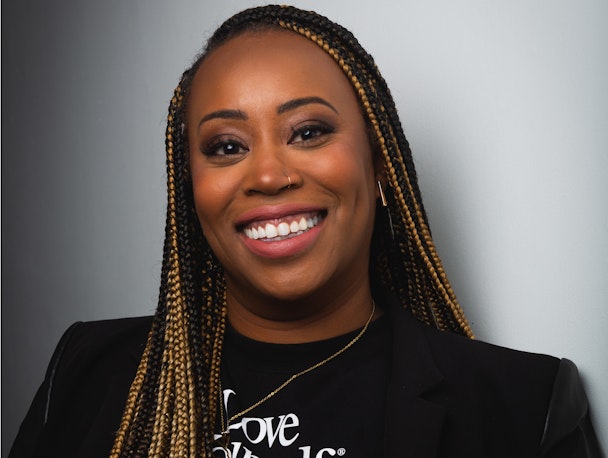What Oliver’s ‘outsider’ boss learned in her first year running an ad agency
After a year and change in the top job at Oliver UK, former HR head Amina Folarin says she still feels like an outsider looking in on advertising.

Amina Folarin, Oliver’s UK boss / Oliver
Amina Folarin has had a lot thrown at her during her first year as chief executive officer of Oliver UK. A recession in Britain dampening client spending; a shifting corporate structure at parent firm Brandtech, which has been acquiring new tech and marketing services companies; and a historic industrial shift, as Oliver and its peer agencies adopt AI technologies.
“It’s been a baptism of fire,” she jokes. Folarin, though, is part of a new generation of agency leaders that earned their stripes during the pandemic. She says that experience was an essential training ground that helped her navigate the UK’s recent (and ongoing) recession.
“If you were in a leadership role, then every day you were dealing with something new. Dealing with the unexpected helped me. Once I’d got over the shock to the system, I knew I’d got this, I know what I’m doing.”
Oliver’s commercial performance in the UK suggests it’s managed to successfully surf rising client demand for in-housing services – a specialty for which it’s the largest provider in the industry – bringing on 21 new clients in the last year.
Folarin, who came to the job after a previous stint at the agency’s chief people officer and a career in HR, says she’s found it difficult as an industry “outsider.”
“It’s not just about ethnicity, gender, or social background. I live in London, but I’m not from here,” the Wolverhampton-born exec notes. The British advertising business, she notes, is totally “London-centric”, leaving marketers and agency staffers based outside the capital shut out of opportunities. “More work needs to be done to broaden out some of that,” she says.
“If you’re a single mum that lives in Manchester, how do you get to events down here? I know there’s online ones, but let’s face it.”
Despite some enthusiasm and a handful of initiatives among agency recruiters to bring perspectives from other sectors, she says a lack of advertising contacts can hold back people joining the industry from elsewhere.
Recruiters, she notes, “want you to have this whole roster [of peers and contacts]. You can have that if you’ve worked in the industry for 25 years; if you’ve only done it for two, with all the will in the world... you can’t. It takes time.”
“I think it’s quite difficult for you to be an outsider to the industry, and build a network really quickly because there’s a lot of people that have worked in the industry since university,” she adds. “They’ve all got someone that they can pick up the phone to. I had to work 10 times harder to start building my network.”
A first-timer as a chief exec at Cannes Lions last year, she says the event felt “totally overwhelming.”
“Who doesn’t want to be in the south of France in June? But, I felt like I felt like a nervous schoolgirl because I didn’t know anyone. It was completely overwhelming. By the time I figured it all out, it was like the last day and it was too late anyway.”
“I don’t know how we solve that. But I think if the industry wants to solve this diversity problem, it also has to solve this,” she says.
Furthermore, life on the other side of the line between employer and employee has meant adapting her approach to leadership. A self-confessed extrovert with ADHD, Folarin says she’s had to redraw the lines of her professional self.
“I’m really aware that I’m a big personality,” she says. But the need to delegate, to leave space for others in the room to take the lead, has meant she’s had to hold back in the job.
“I’ve had to temper myself a little bit, to not always be the voice in the room that has the answer – to hold space for people to let them come up with the answer.” The opposite approach, she notes would be a “dictatorship” in the office. “What would be the point of having a leadership team? I’ve had to make sure my style is more inclusive to allow for some of the people that are not extroverted.”
Folarin suggests ambitious ad folk should get themselves trained on coaching methods, to ensure they can provide smart leadership to the teams they lead. “Learn to coach. More and more of my team are going through coaching qualifications. It’s a really powerful tool for leading teams – in a business, with a client – and often it’s just about asking questions,” she says.
“People think intellect is displayed by saying a lot. Actually, it’s the ability to listen, doubt, take a lot of different sources of information, reflect back and then ask a really smart question that then leads you on to something else.”

